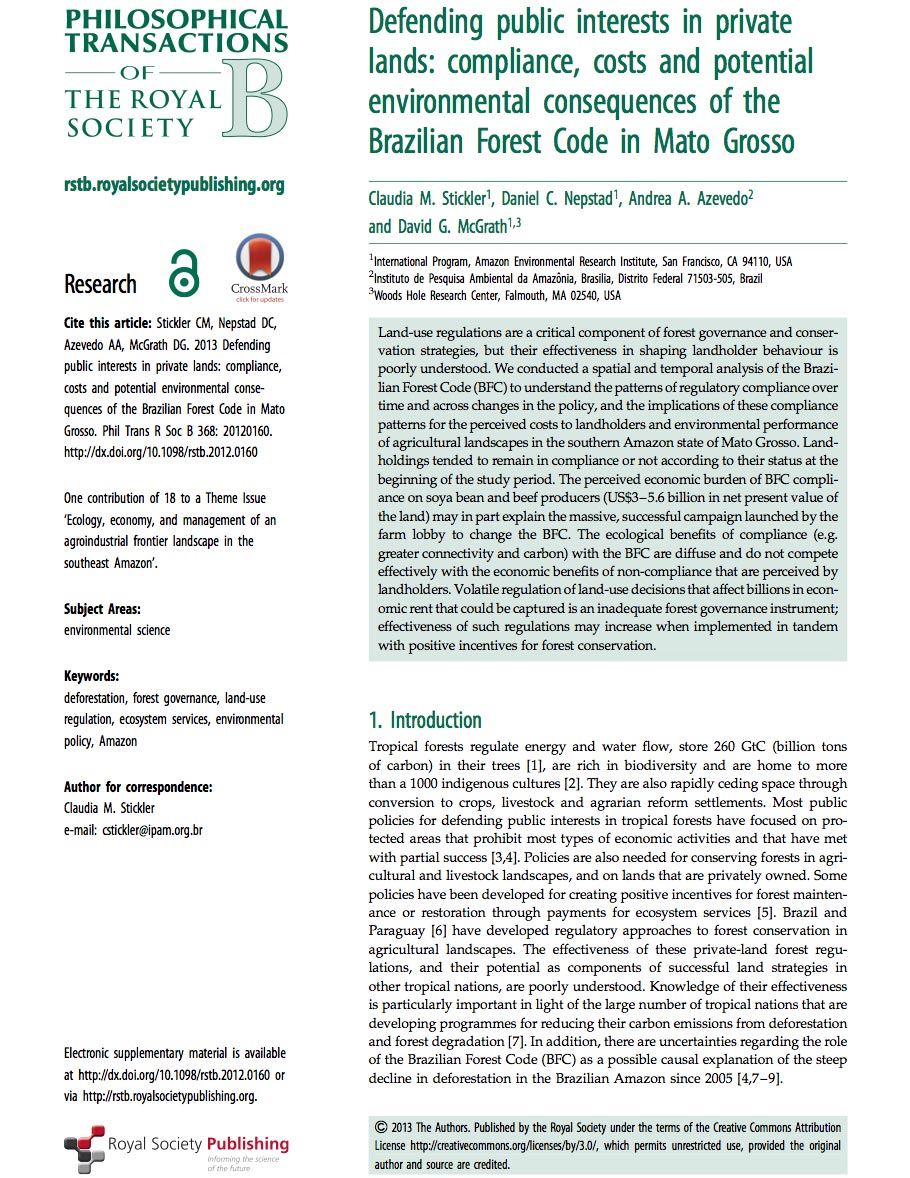PUBLICATIONS
2013
Oct
Land-use regulations are a critical component of forest governance and conservation strategies, but their effectiveness in shaping landholder behavior is poorly understood. We conducted a spatial and temporal analysis of the Brazilian Forest Code (BFC) to understand the patterns of regulatory compliance over time and across changes in the policy, and the implications of these compliance patterns for the perceived costs to landholders and environmental performance of agricultural landscapes in the southern Amazon state of Mato Grosso. Land- holdings tended to remain in compliance or not according to their status at the beginning of the study period. The perceived economic burden of BFC compliance on soya bean and beef producers (US$3 – 5.6 billion in net present value of the land) may in part explain the massive, successful campaign launched by the farm lobby to change the BFC. The ecological benefits of compliance (e.g. greater connectivity and carbon) with the BFC are diffuse and do not compete effectively with the economic benefits of non-compliance that are perceived by landholders. Volatile regulation of land-use decisions that affect billions in economic rent that could be captured is an inadequate forest governance instrument; effectiveness of such regulations may increase when implemented in tandem with positive incentives for forest conservation.

